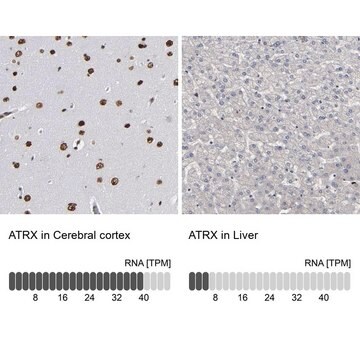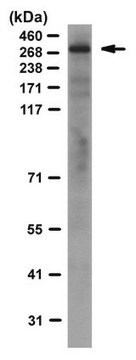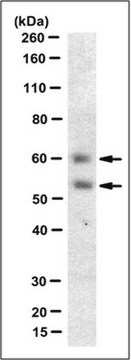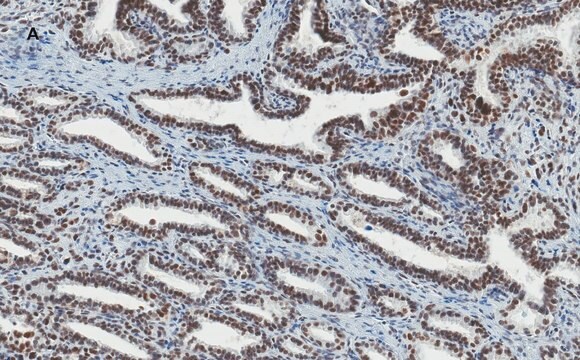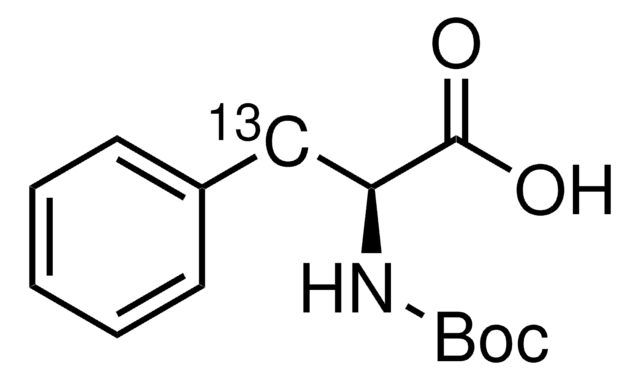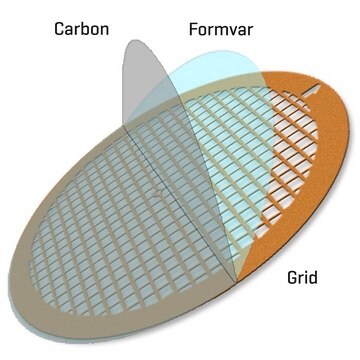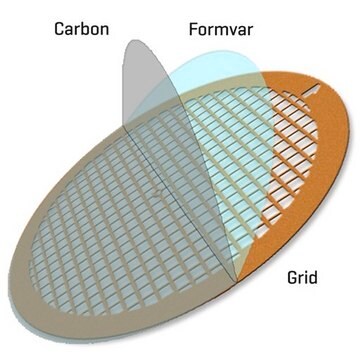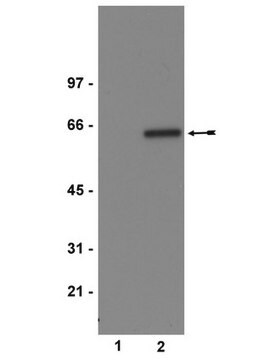MABE897
Anti-ATRX Antibody
mouse monoclonal, 23C
Sinónimos:
ATRX, Transcriptional regulator ATRX, ATP-dependent helicase ATRX, X-linked helicase II, X-linked nuclear protein, XNP, Znf-HX
About This Item
Productos recomendados
Nombre del producto
Anti-ATRX Antibody, clone 23C, clone 23C, from mouse
biological source
mouse
Quality Level
antibody form
purified antibody
antibody product type
primary antibodies
clone
23C, monoclonal
species reactivity
mouse, human
technique(s)
immunocytochemistry: suitable
western blot: suitable
isotype
IgG1κ
NCBI accession no.
UniProt accession no.
shipped in
wet ice
target post-translational modification
unmodified
Gene Information
human ... ATRX(546)
General description
Immunogen
Application
Epigenetics & Nuclear Function
Nuclear Receptors
Immunocytochemistry Analysis: A representative lot detected nuclear localization of ATRX in HeLa and L929 cells (McDowell, T.L., et al. (1999). PNAS. 96(24):13983-13988).
Quality
Western Blotting Analysis: 2.0 µg/mL of this antibody detected ATRX in 10 µg of HeLa cell lysate.
Target description
Physical form
Storage and Stability
Other Notes
Disclaimer
¿No encuentra el producto adecuado?
Pruebe nuestro Herramienta de selección de productos.
Optional
Storage Class
12 - Non Combustible Liquids
wgk_germany
WGK 1
flash_point_f
Not applicable
flash_point_c
Not applicable
Certificados de análisis (COA)
Busque Certificados de análisis (COA) introduciendo el número de lote del producto. Los números de lote se encuentran en la etiqueta del producto después de las palabras «Lot» o «Batch»
¿Ya tiene este producto?
Encuentre la documentación para los productos que ha comprado recientemente en la Biblioteca de documentos.
Nuestro equipo de científicos tiene experiencia en todas las áreas de investigación: Ciencias de la vida, Ciencia de los materiales, Síntesis química, Cromatografía, Analítica y muchas otras.
Póngase en contacto con el Servicio técnico